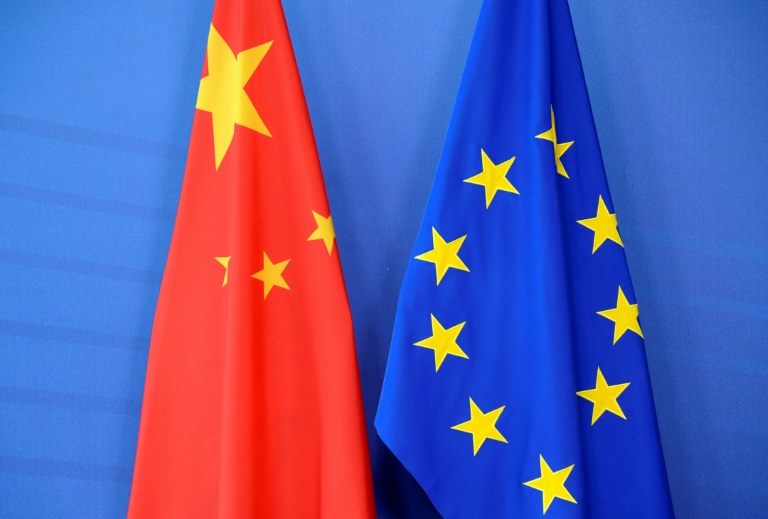KEY POINTS
- Jens Eskelund said both sides should talk about ‘sensible de-risking’
- China accused the EU of ‘naked protectionism’ after it launched a probe into Beijing’s EV subsidies
- A top EU official said the EU-China relations are currently at ‘a crossroads’
The European Union has been focused on de-risking itself from China, one of its major trading partners. However, facts and figures show China has already been de-risking “for decades,” the EU chamber head says.
“We need to keep in mind that China has been de-risking itself for decades,” Jens Eskelund, president of the European Union Chamber of Commerce in China, said on CNBC’s “Asia Squawk Box” on Monday.
He said Beijing has developed multiple de-risking plans in recent years such as the Made in China 2025 plan, the dual circulation model and the government’s self-reliance strategies.
“Instead of sitting and throwing, you know, accusations back and forth across central Asia to Europe and China respectively, we need to sit down and talk about what constitutes a sensible de-risking – what makes sense in terms of protecting the economic viability of each side,” Eskelund said.
China’s commerce ministry had earlier accused the EU of “naked protectionism” after the bloc launched an investigation into Beijing’s subsidies for electric vehicles. The probe could result in punitive tariffs on cars the EU officials believe are unfairly sold at a lower price, undercutting European competitors.
The commerce ministry warned it would “pay close attention to the protectionist tendency” from Europe, adding that it will protect the legitimate rights of Chinese companies in the EV industry.
Chinese foreign ministry spokesperson Mao Ning also criticized the EU’s move, saying Beijing opposes “all forms of trade protectionism.” She said decoupling from China will disrupt the global auto industry’s supply chains.
Valdis Dombrovskis, executive vice-president of the European Commission and trade commissioner, said the relationship between the EU and China “stands at a crossroads.”
“We can choose a win-win path of open, fair trade/investment + tackling global challenges. Or, we can face a path that slowly moves us apart,” he tweeted.
EU-#China engagement remains essential: we are key trading partners, with highly integrated economies.
But we stand at a crossroads.
We can choose a win-win path of open, fair trade/ investment + tackling global challenges.
Or, we face a path that slowly moves us apart. pic.twitter.com/h9BKBnrCzU
— Valdis Dombrovskis (@VDombrovskis) September 25, 2023
The EU has real concerns relating to market access & other challenges our businesses face in #China.
We have requested that our Chinese partners engage on this. We wish to see greater transparency, predictability & reciprocity.
We welcome competition, but it must be fair. https://t.co/wRPPV7J7eS pic.twitter.com/ZmCuDFWtG8
— Valdis Dombrovskis (@VDombrovskis) September 25, 2023
China’s trade makes up for around 2.5% of the eurozone’s gross domestic product (GDP). However, the EU’s trade deficit with China widened further to $276.6 billion in 2022. The previous year logged a trade deficit of $208.4 billion.
Amid concerns that Chinese retaliation over the subsidies probe may hurt the EU’s economic growth, economy commissioner Paolo Gentiloni said he was “confident” that the bloc could overcome any form of retaliation from Beijing.
The EU has been emphasizing the concept of de-risking from China, and experts believe the Asian powerhouse “has quite a lot to lose from a trade war” with the EU. It’s a different case with the U.S.
“Viewed from China, the EU is the most important high-income market that it still has largely unfettered access to. This in turn makes it far less likely that China will actively try to limit trade with the EU,” an analyst said.






